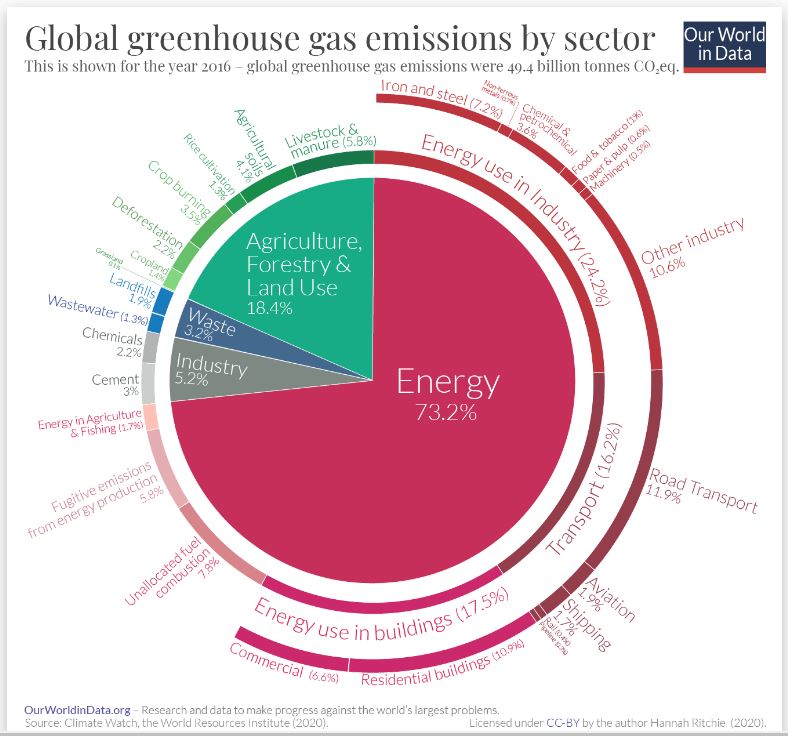
Saving the planet one kWh at a time
I’ve been reflecting lately on why, in my efforts to contribute to ‘saving the planet’, I have devoted my working-life to saving energy, and specifically, saving energy in homes. I’d like to share with you the reasons I’ve taken this path, and why saving energy is a really good way for everyone to make a difference, for the sake of climate change, and for a host of other benefits.
My own journey started several years ago – I was suffering from what can only be described as climate grief, worrying about the fate of our planet and feeling powerless to do anything about it. As individuals there are so many actions we can take to reduce our impact and make a positive contribution helping the planet, but where on Earth do you start? I was also frustrated by the endless doomsday conversations with friends about everything that is going wrong environmentally, and how little is being done about it. I found it overbearing, those conversations just made me feel more hopeless and powerless. My personality is such that I need to do something, anything to ease that feeling of hopelessness.
There are so many options for actions we can take as individuals to make a contribution to the climate crisis, and many of them we can do without changing jobs and devoting our lives to them.
Here’s just a few examples of actions you can take:
-
- Volunteer with a community group, such as Landcare
- Donate money to an environmental cause or organisation you feel strongly about, e.g. Rainforest Rescue, WWF, Greenpeace.
- Transportation: drive less, take public transport, drive an electric vehicle
- Reduce waste: buy less stuff, recycle more, compost, buy less plastic, waste less food.
When I decided to get solar panels on our roof and started learning how to make our house more energy-efficient, I wasn’t planning at that point to quit my job and become an ‘energy consultant’. At that point I was simply following my nose, taking action in my immediate environment to reduce my home’s impact on the planet, and thereby my own. However, in the process of learning the many facets of low-energy homes, and practically implementing them in my own living space, I discovered that not only was it a satisfying and rewarding way of taking action, but also I had a natural aptitude for it. I was lucky in a way that my home was poorly designed for thermal comfort and required a lot of energy to run, because that was my first training ground. And as I started making headway I realised that this was a field I really enjoyed working in, and that I could make a much bigger difference environmentally if I shared what I had learnt with others, and didn’t stop with my own house. So I took the next step. Searching the net I found a local organisation (Enova Energy) that trained volunteers to go to people’s houses and provide ‘energy coaching’. Their training expanded what I knew and gave me tools to provide a practical service to households. I won’t take you through my whole career transition, except to say that I now manage to make a living exclusively from environment-related work, and energy specifically, whether it be advising households on installing solar, or conducting a thorough Residential Energy Scorecard assessment of their home.
Despite the meandering, opportunistic path that I’ve taken professionally, I’ve learnt along the way that there are a host of very pragmatic reasons why it is good for households, and the individuals in them, to focus on saving energy to make a contribution to mitigating climate change.
Here’s a few good reasons:
-
- The actions you take are visible, practical and concrete (not abstract) improvements to your home.
- The outcomes are quantifiable. For example, if you like to think in terms of carbon emissions and carbon footprints, did you know that every kilowatt hour (kWh) of energy used in your home results in nearly a kilogram of C02 emissions? (the Australian average is 0.79kg/kWh, (*1) and electricity derived from coal is between 0.9 and 1.15, depending on the source) (*2).
- All in all, about 11% of Australia’s total greenhouse gas emissions come from the energy used in residential buildings – one aspect we have some direct control over.

Energy Use in Residential buildings – as a proportion of total emissions. source: https://ourworldindata.org/emissions-by-sector (*3)
-
- By lowering your home’s demand for grid-energy you reduce the demand for energy infrastructure (production and transportation), contributing to grid-stability and a transition to a grid powered by renewables.
- You contribute to a reduced demand for fossil fuels. Even if you get your power from a green electricity retailer, the reality is that much of the power they provide will come from coal and gas. There just isn’t enough renewable energy to meet demand, especially at night.
- The time and/or money you spend on improving your home is totally up to you, you don’t need to commit specific amounts of time eg to volunteer work, or money to a charity/cause. But by all means do them as well if you can.
- The benefits are broad-ranging (not just environmental). You save money on energy bills, your home is more comfortable, and healthier.
- You can get support! That is, if you’re not keen on taking the energy learning-journey or doing a whole lot of DIY improvements to your home, you can engage a professional like myself to assess your home and advise on options, depending on motivations, budget and the specific characteristics of your home.
There you have it, that’s my take on why creating a low-energy home is a good way to contribute to the climate crisis – and why I and other energy advisors dedicate their professional lives to the pursuit of ‘saving energy’.
Sources:
(*1) https://www.dcceew.gov.au/…/national-greenhouse…
(*2) https://www.energycouncil.com.au/…/will-coal-play-a…/…..
(*3) https://ourworldindata.org/emissions-by-sector
–***–
